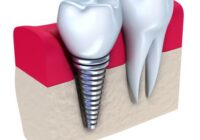
Breast cancer is one of the most prevalent health crises today. In fact, an estimated one in eight women will be affected by invasive breast cancer in her lifetime. Naturally, as a result, much research has been devoted to finding a cure for this terrible disease. And while a cure is an ideal outcome for the illness, there are many other types of research currently under way to help us understand the disease.
One such research initiative comes out of the Institute of Oral Biology at the University of Zurich in Switzerland. But what does oral biology have to do with breast cancer? According to reports in the journal Cells, the two could be related.
A recent study led by Professor Thimios Mitsiadis found that dental stem cells could someday help breast cancer survivors in the healing process. When Mitsiadis and his team extracted dental epithelial stem cells and mammary epithelial stem cells from the teeth of mice and injected them into the areas in the mice mammary glands (the ones that grow mammary tissue), the stem cells actually helped regenerate and grow new mammary tissue!
What does that mean exactly? It means that researchers may have found a way to use teeth to regrow other areas of the body – in this case breast tissue.
So far, the only caveat to the procedure is that in some cases the breast tissue grew cysts after formation, but the researchers are still optimistic that the combination of dental stem cells and mammary cells will be a winning combination and someday be used to help in healing processes throughout the body.
So, what exactly are dental epithelial cells? Dental epithelial cells are located inside the teeth and act as a divider between the inside and outside of the teeth. While some dental epithelial cells are present in adult teeth, new initiatives have aimed to bank lost baby teeth because they are rich in these cells. Banking dental stem cells could enhance current medical procedures, and may help researchers discover new treatments in the future such as this new potential procedure.
To schedule an appointment with Dr. Abelar, please call 858-256-4088.






